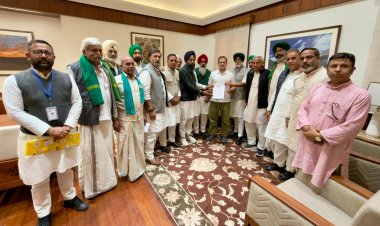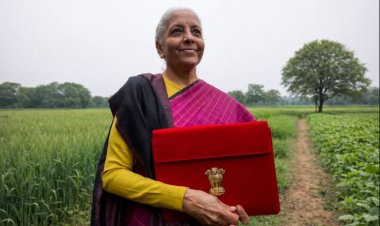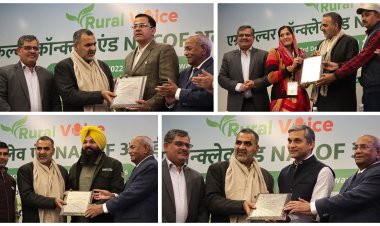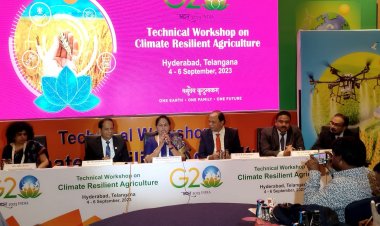In order to control the prices of rice in the domestic market, the government has decided to continue the Minimum Export Price (MEP) condition of $ 1200 per tonne on the export of Basmati rice, prompting exporters in Basmati-producing states of Punjab, Haryana, Uttar Pradesh and Uttarakhand to stop purchasing Basmati paddy.Due to this, a situation of big fall in its prices may arise.
In an office memorandum issued by the Consumer Affairs Ministry on October 14, it has been said that the MEP of $ 1200 per tonne on the export of Basmati rice will continue even beyond October 15.
The notification came as a blow to exporters who were hopeful that the government could bring the MEP to around $ 850 per tonne after October 15 and due to this, farmers of Basmati 1509 and other early growing varieties got a price of Rs 3,600 to Rs 3,800 per quintal.
In the last few days, the price of Basmati paddy has come down to Rs 3,500 per quintal.
Exporters say that if there is no change in the government's decision to continue the MEP of $ 1200 per tonne, then the price of Basmati paddy may fall further by Rs 500 per quintal.
Farmers growing Basmati 1121 variety and traditional Basmati variety may have to suffer huge losses due to fall in prices.
Vijay Setia, former president of All India Rice Exporters Association (AIREA), told Rural Voice that so far only 30 per cent of Basmati paddy has reached the market and 70 per cent of the crop is yet to reach the market.In such a situation, due to the government's decision to continue the MEP of $1200 per tonne, farmers may have to suffer huge losses.Exporters have currently stopped purchasing Basmati paddy in all Basmati producing states. "If the government changes its decision then we can start it," said Setia.
Last year, 45 lakh tonnes of Basmati rice worth about Rs 48,000 crore was exported from the country.
In August, the Central Government had directed the Agricultural and Processed Food Export Promotion Authority (APEDA) to follow the condition of $1200 per tonne for issuing registration and allocation certificates for the export of Basmati rice.
Exporters held a meeting with the government on the issue following which a committee was formed which was asked to report on the decision in October.
The committee held meetings with stakeholders concerned in Basmati producing states. Exporters were expecting the government to cut MEP.
Setia said that this committee had held meetings in 7 states and given its report to the government.
The exporters' body also held a meeting with the Union Commerce Minister. "We were assured that the MEP would be changed. Expecting it to be $850 per tonne, exporters bought Basmati paddy at Rs 3600 to Rs 3800 per quintal. But 70 per cent of the crop is yet to reach the market. Due to delay in decision by the government, the price of Basmati paddy has come down to Rs 3500 per quintal. If the government does not change its decision then it may fall further by Rs 500 per quintal."
He says that about 80 percent of India's Basmati rice goes to Middle East countries. There goes the parboiled basmati used in biryani. The average of its price in the last three years has been $ 850 per tonne in 2020-21, $ 894 in 2021-22 and $ 1054 per tonne in 2022-23. In such a situation, 80 percent of our exports are being affected by this step of the government because we are not in a position to export it at the price of $1200.
Setia says that according to the crop estimation we have made through satellite imaging, Pakistan's crop this year is double that of last year. This decision of the government has given Pakistan an open window of two months which it will take advantage of. Whereas we are not in a position to export. He says that some Basmati 1121 variety rice which is used as steamed rice can be exported at $1200 but its quantity is very less.
On the formula used by the government to decide MEP, he says that at the end of the season, old rice is sent for which the price is higher. Even now two year old rice can go for up to $1600 while the price for smaller packets is even higher. But this is a limited quantity. This cannot be made the basis of MEP.
Currently, the highest producing variety of Basmati, 1121 and traditional Basmati crop is yet to come in the market. In such a situation, the farmers producing these may have to face the situation of falling prices.
Exporters say that India's biggest competitor in the global market, Pakistan, is exporting Basmati at a price of around $900 per tonne. In such a situation, it will be difficult for India to export Basmati at a price of $1200 or above. In the last financial year (2022-23), the total export of rice from the country had reached 223 lakh tonnes. India's share in the global rice market had reached 40 percent.
But due to rising prices in the domestic market, the government had banned the export of non-Basmati white rice. About 100 lakh tonnes of which was exported. After this, export duty of 20 percent was imposed on the export of parboiled rice (sela rice). The period of this fee has also now been extended till March 31, 2024.
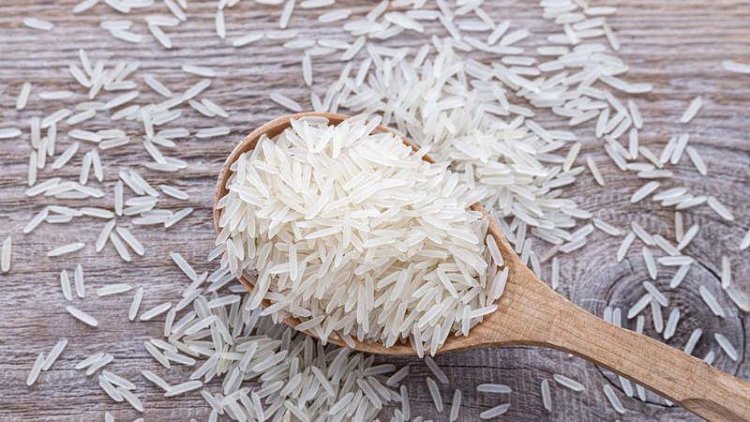



 Join the RuralVoice whatsapp group
Join the RuralVoice whatsapp group


















